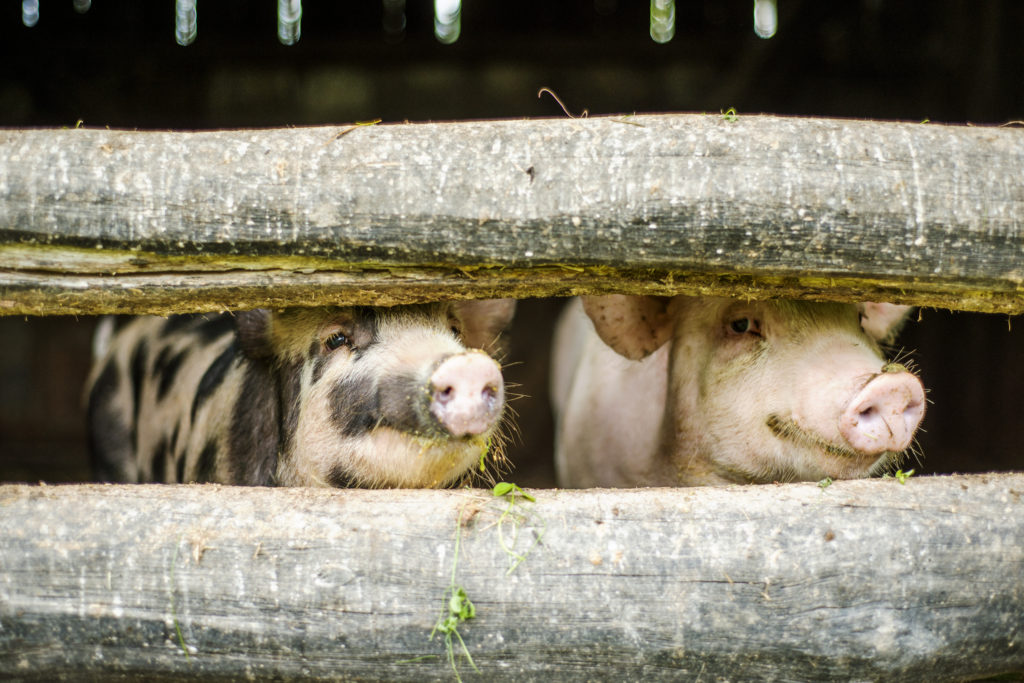
Pigs can be a great choice to start or expand your livestock farm. Pig litters are large, and the feed-to-meat conversion ratio is better than many other livestock options. Pigs mature quickly and are ready for market sooner than many alternative farm animals.
A farmer raising pigs has to choose a method of farming: intensive or free range. In intensive farming, the pigs are kept in an enclosed area and food and water are brought directly to the animals. Free-range farming implies that the animals are left to move around more, foraging on oats, barley, and even grass. There are pros and cons to each approach, but either method can lead to a successful livestock business.
In addition to choosing intensive or free-range methods, every pig farmer has to deal with some important questions.
Do you have access to Water?
Water is a priority in all farming, even when raising livestock. Lacking a reliable water supply can lead to productivity loss, disease and even death of livestock. A pig requires between 10 and 50 liters of water per day, depending on the animals age and size.
A 1200 liter tank for every 10 pigs is a good rule of thumb. This allows at least two days worth of water to be kept in reserve, in case of supply problems that require time to repair.
Will you breed or buy Piglets?
A farmer can breed pigs or buy young pigs to grow and sell. A new pig farmer should probably buy young pigs the first few times, grow them out and sell them before attempting to breed them. Focusing energy on understanding pigs better and to develop production policies will reduce the complexity of the operation. Breeding young pigs, will add additional complexity and difficulties to the task of rearing pigs.

Do you have the Equipment and Facilities?
Pigs require food, water, and protection from the elements. Pigs are powerful animals and need solidly built infrastructure including housing, water troughs and fencing. Pigs are susceptible to several diseases, particularly in intensive farming systems where crowding may be a problem. Facilities need to provide sufficient space to be able to isolate sick animals and decrease chances of illness spreading.
What Feed will you use?
Before buying your first pigs, make sure you can afford to vaccinate and feed them until they are market-ready. Pigs that are raised on lower quality food will grow more slowly and yield less meat. A quality, nutritionally balanced feed will cost more but may provide a better return.
Raising pigs can be a great way to earn more money from an existing farm, or to start a new livestock venture. When you are ready to expand your livestock business or start a new livestock facility,
Farm Grants can help.
I am a new skilled immigrant with experience in pig farming in my country. I am interested in starting a pig farm and wish to know the support that is available in my situation. Since I landed just a week ago, I wish to know if I can have access to a mentor.
Please contact us directly and we will try to help.
Hai my name is manoj varghese.I am a permenent resident in canada for the last 6 years. For 12 years my family ran a pig farm in india. I want to start a farm in alberta . I will contact you for more information. Thanks.
Hi am a new comer in Canada with a permanent resistant card, I wanna join pig farming, because I have a skill in pig farming and poultry, how can I do to start pig farming in Canada, because that’s my favourite business. Contact me on my phone number +1(437)2339278 , I will be so happy for your help.
Please contact us directly for program information.
I am interested in becoming a Pig Farmer on a small scale to produce Organic Pigs for market I would like to know the requirements for owning and operating my own Pig Farm also is there any land that I can lease or are there grants for such a venture.
Please contact us directly and we will try to help.
Hi, we are interested in farm land . Please get back to us for more information .
Please contact us directly for program information.
I would like to know the requirements for owning and operating my own Pig Farm also is there any land that I can lease or purchase? are there grants for such a venture?
Please contact us directly for program information.